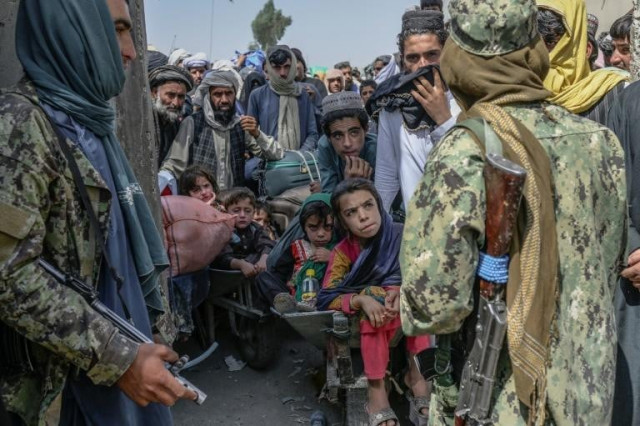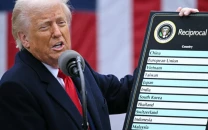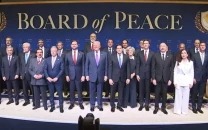Taliban govt cuts flour, sugar, edible oil prices
New rulers of Afghanistan also reduce taxes by 60%

To offset the effects of inflation and dwindling foreign reserves, the interim government of Taliban in Afghanistan has taken scores of measures including subsiding three basic items -- flour, sugar and edible oil – and slashing down taxes by over 60%.
A notification by issued by the Afghan finance ministry issued read that it had generated a bar code to curtail illegal drug trade.
The decision came as the new regime is trying to facilitate farmers bereft of resources and traders facing acute challenges due to disrupted market supplies.
The move will also help block smuggling being carried out through the country’s porous borders.
It will also help in reining in the skyrocketing prices of essentials in Afghanistan after the US withdrew its troops.
Compared with the prices of commodities under the previous regime, the import duties on 1,000kg of flour have undergone a significant cut.
The duty has been slashed down to 1,000 Afghanis -- a decrease of 67.7%.
Similarly, cooking oil, which was imported at the rate of 5,885 Afghanis, can be now procured at a significantly lower price.
Likewise, the government has also cut levies on medicines.
The finance department is of the view that with these wide-ranging measures, the tax revenue will increase manifold which, its claims, is more evident in the fact that in less than three months, the tax department collected 1.7 billion Afghanis. From 26 September till October 26, the department managed to collect 4.6 billion Afghanis.
However, the Taliban regime also faces various other challenges as it embarks on a herculean task of rehabilitating the country’s war-ravaged infrastructure from the scratch, with little help from the international community.
They include the looming financial crisis and the targeted attacks by ISIS-K and other groups rearing their hands in resistance.
On Friday, an alliance of former jihadist political parties formed a council to launch its resistance in a proper manner.
In response to the Taliban takeover, the US froze $9.5 billion in foreign reserves, Germany suspended $300 million in aid, and the International Monetary Fund (IMF) suspended $440 million in special drawing rights (SDR) allocation. The sum of this foreign aid made up 40% of Afghanistan’s gross domestic product (GDP).
To make matters worse, the new government is also confronted with the task of lifting up the pre-existing sanctions imposed on the Taliban since 2001.
The Taliban’s takeover was a challenge that pales in comparison to their next mission: governance during an economic crisis.
According to the World Bank, Afghanistan’s GDP has almost quintupled between 2002 and 2020, jumping from $4 billion to $19.8 billion.
This growth was driven by the influx of foreign aid into a highly centralised government. The international community flooded the weak, corrupt system with funds — both keeping the Afghan government afloat and preventing it from being held accountable to Afghan citizens.
“Afghanistan’s 2004 Constitution conferred upon the president significant control over the country’s finances while virtually excluding local representatives from the budgeting process,” Afghan journalist Ahmed Zai said.
Consequently, the budget was often unrepresentative of local needs and preferences, leading the Afghan people to believe it did not represent their will.
The implications of those frustrations became clear when the Afghan people’s dissatisfaction with their exclusion from the budgeting process contributed to a fiscal crisis on January 16, 2021.
“If the US and international community do not assist and drag out Afghanistan of its looming threats of human and financial meltdown, it would lead to another mess that would jeopardise regional stability,” Ahmed added.



















COMMENTS
Comments are moderated and generally will be posted if they are on-topic and not abusive.
For more information, please see our Comments FAQ